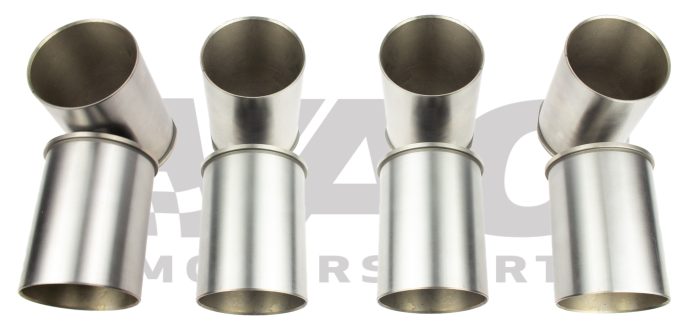In today’s high-performance engineering world, the demand for custom cylinder sleeves is growing rapidly across industries. From the adrenaline-fueled circuits of motorsports to the quiet efficiency of agricultural machinery, these precision components are at the core of performance, durability, and reliability. Their ability to enhance engine longevity, resist wear, and optimize thermal management makes them indispensable for multiple sectors.
The Versatility of Cylinder Sleeves
Cylinder sleeves, also known as liners, play a crucial role in engine performance. Acting as replaceable inner surfaces within the engine block, they protect the cylinder bore from friction, heat, and wear. As engines become more powerful and compact, the need for sleeves tailored to specific materials, tolerances, and surface treatments has surged. Whether it’s aluminum alloys for lightweight performance or ductile iron for heavy-duty endurance, customization ensures optimal compatibility with each application.
Motorsports, for instance, demand extremely high precision. Racing engines operate under enormous thermal and mechanical stress, often exceeding 10,000 RPM. A custom cylinder sleeve designed to handle such loads allows teams to push performance boundaries without compromising reliability. By contrast, agricultural engines—though less intense—require sleeves built for longevity and resistance to dust, moisture, and temperature variations over years of operation.
The Role of Material Science
Advancements in metallurgy have transformed how cylinder sleeves are produced. Engineers now design sleeves with hybrid materials that balance strength and heat conductivity. For example, nickel-chromium-molybdenum alloys improve hardness and reduce wear, while plasma coatings enhance lubrication and heat dispersion. These developments have made it possible for manufacturers to produce sleeves tailored to each sector’s specific mechanical and environmental demands.
In motorsports, where every gram matters, aluminum-silicon composites dominate because of their lightweight nature and excellent heat transfer. Conversely, in marine and agricultural applications, corrosion resistance and structural rigidity are prioritized, making cast iron or steel sleeves the preferred choices. Customization bridges these contrasting needs, ensuring every market segment gets the best performance possible.
Diverse Industries, Shared Engineering Values
Beyond motorsports and agriculture, custom cylinder sleeves are now essential in a wide range of sectors: aerospace, power generation, construction, and even renewable energy. Each industry brings unique challenges—temperature extremes, load variations, and lubrication requirements—that drive innovation in sleeve design. This diversity has fostered a new ecosystem of collaboration between materials scientists, engine designers, and suppliers of custom metal forging services, who provide the precision forming and heat treatment necessary to meet modern performance standards.
These forging specialists combine advanced simulation technologies, CNC machining, and non-destructive testing to deliver components that meet exacting dimensional and metallurgical specifications. Their ability to create sleeves from billet or forged blanks ensures structural integrity while minimizing internal defects—a crucial factor in industries that cannot afford downtime or failure.
For instance, in the agricultural sector, a farmer’s tractor engine may operate thousands of hours each year in harsh environments. A sleeve failure could mean lost productivity and costly repairs. Similarly, motorsport teams cannot risk inconsistency—each sleeve must perform identically to maintain competitive balance. By partnering with an experienced mechanical parts manufacturer, businesses across these markets gain access to precise machining, surface finishing, and performance testing, ensuring every component meets the application’s exact standards.
Precision Manufacturing: Where Art Meets Engineering
Producing custom cylinder sleeves is as much an art as it is a science. Advanced Computer-Aided Design (CAD), finite element analysis (FEA), and adaptive manufacturing techniques enable engineers to tailor every dimension—from wall thickness and port configuration to surface microstructure. The process typically includes forging or casting the base material, rough machining, heat treatment, precision honing, and coating. Every step affects how the sleeve handles heat transfer, pressure, and wear.
What makes custom manufacturing particularly valuable is flexibility. Whether an automotive designer needs a lightweight performance sleeve or an agricultural OEM demands corrosion-resistant, long-life components, customization allows manufacturers to respond quickly to niche needs. This adaptability supports innovation across diverse markets, reducing waste, optimizing cost, and extending product life cycles.
Conclusion
From race tracks to farmlands, the growing demand for custom cylinder sleeves reflects a broader industrial trend toward precision, performance, and sustainability. Each industry—motorsports, agriculture, aerospace, and beyond—seeks the same core benefits: reliability, efficiency, and longevity. By harnessing the expertise of custom metal forging services and collaborating with a skilled mechanical parts manufacturer, companies can ensure that their engines, machines, and equipment not only perform better but last longer. In a world driven by both speed and endurance, custom cylinder sleeves have become the unsung heroes of mechanical innovation.






